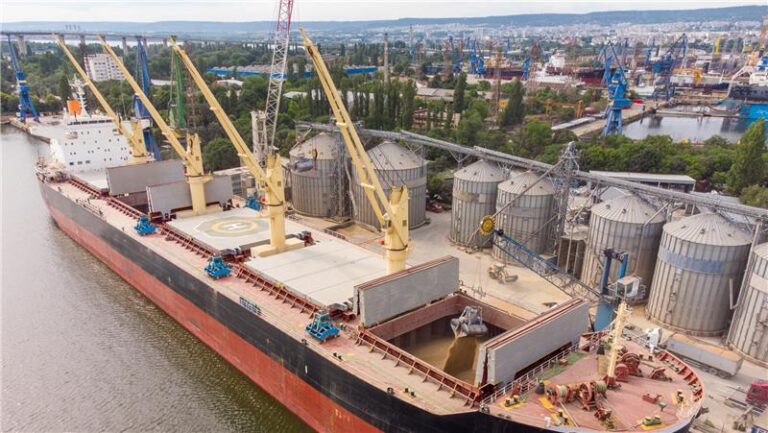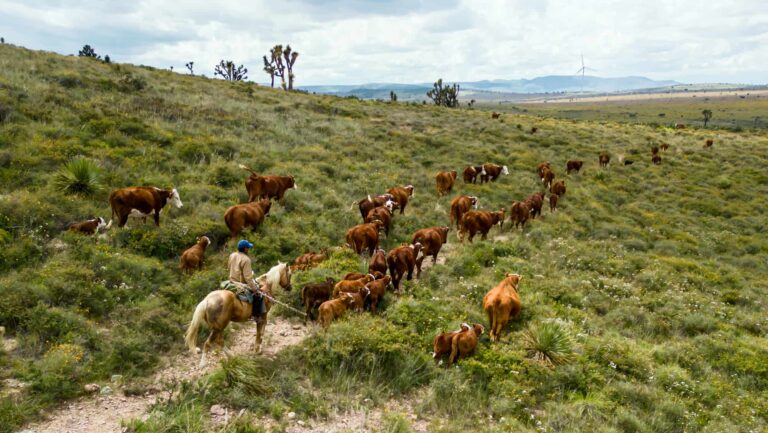The Landowner’s Guide to Eminent Domain
Is eminent domain threatening your farmland?
When farmland is in the way of public construction projects like highways and utilities, the government may enact the power of eminent domain to take the land. You may feel intimidated by the unfamiliar process and worry that you will not get fair payment for your farmland, but there are steps you can take to protect your rights.
In this article, we break down eminent domain in agriculture, explain the process, and offer options you can leverage if you’re fighting eminent domain.
What Is Eminent Domain?
Eminent domain is the power of the U.S. government to take land for public use. The process of enacting eminent domain is called condemnation.
The U.S. Constitution ensures that property owners are fairly compensated when their land is taken, and the use of eminent domain must serve a critical public purpose according to legal precedents like those established in Supreme Court cases Boom Co. v. Patterson and Kohl v. United States.
Generally, any land can be seized with eminent domain. But some states have written exceptions for things like cemeteries, orchards, factories, and more. It’s important to seek legal counsel on the specific exceptions in your state.
Effects of Eminent Domain Land Values
Eminent domain can have a wide variety of effects on farmland depending on the planned construction and the amount of land being taken. During the eminent domain process, the government will determine how much of your land needs to be condemned and then hire third-party appraisers to determine the value of the land being taken.
The amount paid to you in compensation is based on the current value of the land and any structures like fences, wells, and buildings within it.
What if the value of my land changes after construction is complete?
In some cases, construction could increase the value of the land. For example, rezoning land for commercial use or replacing dirt roads with paved ones could bring more business to the area and increase accessibility.
On the other hand, some construction projects could decrease land value, like the construction of a dump or a loud, busy interstate. In these instances, you could be compensated for some of this lost value.
What if I have a mortgage on the property?
If you have a mortgage on the property, the government will contact your lender and request a release. In some cases, the loss of property may affect the loan-to-value (LTV) ratio of the land held as collateral. In these cases, your lender may require a partial paydown of your debt to maintain a healthy LTV.
At AgAmerica, we have worked with clients affected by eminent domain to ensure their financial health is prioritized. We ensure the client fully understands how eminent domain affects their lien and work closely with them to identify the best way to pay down the debt if necessary.
Will I be compensated for loss in business?
In most cases, farmers are not compensated for loss in business or future profits. For example, if you planned to plant corn on acreage impacted by eminent domain for the next ten years, it is unlikely you will be compensated for that future loss. Similarly, if you had a store on the property, and you lose some of your parking lot which results in fewer customers shopping at your business, you will most likely not be compensated for that projected loss—only for the actual value of the land and the parking lot itself.
What if I disagree with the appraiser’s estimate?
If you believe the government-appointed appraiser undervalued your land, you have the right to challenge the valuation of your property in court. The constitution guarantees your right to fair compensation—if you feel you are being treated unfairly, it is crucial to seek legal counsel.
Your lawyer will likely hire an appraiser with experience evaluating farmland to ensure you get a fair estimate based on the agricultural potential of the land.
Four Ways to Navigate Eminent Domain on Farmland
Once eminent domain is enacted, there is no way to prevent your land from being condemned. But there are steps you can take to prevent this from happening before enacted or to ensure you get fair compensation if it is.
1. Be a proactive buyer.
If you are considering buying farmland and you suspect it may be impacted by eminent domain in the future, there are steps you can take to protect yourself.
The government is required to announce projects that use the power of eminent domain publicly. Many projects, like interstate expansions, are announced years in advance, whereas smaller projects may have a notice of a few months.
You can query the Department of Transportation and other public entities to see if any construction is planned near the land you are considering purchasing.
2. Participate in public forums.
If you already own your farmland, staying abreast of construction projects in your area can help you prepare and, in some cases, fight back. Many construction projects, like local parks, are announced in public forums where farmers have a chance to voice their dissent and possibly stop the construction before it is approved.
3. Seek legal counsel.
It’s important for farmers facing eminent domain to understand their rights, seek legal counsel, and engage with relevant authorities to ensure fair treatment. Without legal counsel, many farmers feel that they would not receive fair compensation for their land.
“There are a lot of appraisers who don’t do that well,” said Kelly Keady, an attorney at Biersdorf and Associates. “All they see is crops growing on the land; they don’t see that it is prime ground in the path of development.”
Many legal aid organizations exist to provide farmers with attorneys at no cost. Some local lawyers may also offer their services pro bono. It is possible to advocate for your rights—you just need the right team to support you.
4. Stay informed on new legislation.
After projects like the Atlantic Coast Pipeline and Pella Airport sparked fear that private companies may gain access to the power of eminent domain, policymakers in some states began to work on legislation to prevent that end.
In March of 2024, the Iowa House committee approved a bill that would enable landowners to ask a court to decide whether eminent domain can be used by companies building pipeline projects.
“Right now in Iowa law, if you appeal, the only way to stop construction while you’re working your case through the court is to put up hundreds of millions of dollars as a bond,’ explained Jess Mazour, of the Sierra Club of Iowa.
The new law would let landowners and pipeline companies ask a court early on if eminent domain is fair for the project. This new law would speed up the process for challenges.
Get Support from a Lender on Your Side
Eminent domain presents unique challenges for farmers, but proactive measures and informed decision-making can help safeguard your farmland and investments. At AgAmerica, we’re committed to supporting farmers like you with proactive solutions backed by years of agribusiness experience.
If you’re concerned about your land value or would like to speak with an agricultural financing expert, don’t hesitate to reach out to us. We’re here to help.
Disclaimer: This material has been prepared by AgAmerica for informational purposes only and should not be relied on for legal advice. You should consult your own attorney or advisers before taking legal action.






